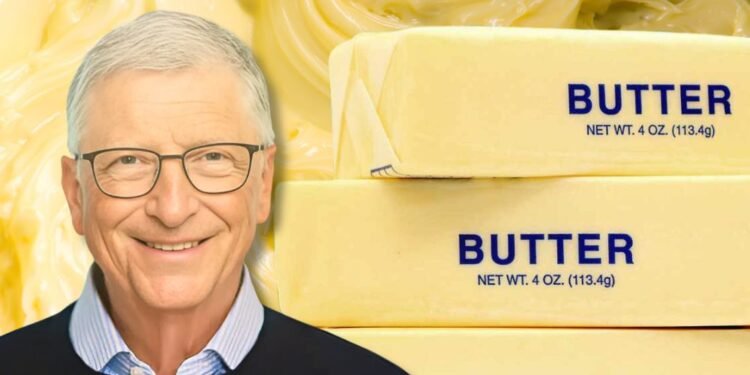Butter is about to get weird. And not because of new flavors, but because it might soon be made from air and water.
Bill Gates-backed startup Savor plans to release lab-grown, carbon-based butter by 2027. The company uses carbon dioxide and hydrogen to manufacture fat molecules, skipping farms, animals, and actual food altogether.
It looks like butter. Tastes like butter. Melts like butter. But is this the future of food—or a tech billionaire’s overreach?
Savor’s butter is being praised for its climate pitch: no agriculture, no animals, no palm oil, and supposedly zero emissions. Gates himself said the shift might feel strange, but sees it as a solution to fight climate change.
With chocolate versions hitting shelves this holiday season, it’s already warming up to market adoption. The ingredients are simple: fat, water, lecithin, and some natural flavor. But what is the process behind it? A full-blown industrial lab operation.
Here’s the catch: it’s not just butter they’re changing—it’s the source code of food.
Turning gases into fat may sound like a sci-fi win, but it sidelines local agriculture and traditional food producers. If this model scales, who controls the food supply when production depends on proprietary tech? Who checks the health risks when regulatory frameworks are still catching up?
And why fix what isn’t broken when butter already exists, and works?
Beyond the shiny sustainability sticker lies a much bigger power shift. Centralizing food production through lab processes opens the door to exclusivity, dependence, and corporate control over something as basic as fat. It may reduce land use, but it risks creating another kind of imbalance—social, nutritional, and economic.
It might melt on toast like butter. But this isn’t just about taste—it’s about what we’re willing to trade for it. And Gates is betting you’ll take the bite.











